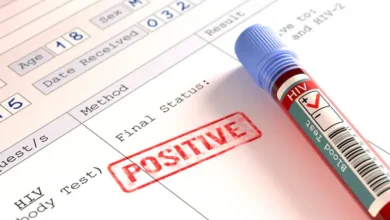Kidney disease cases in India see a 16.38% rise: Key factors driving the increase
The incidence of chronic kidney disease has risen in recent years in India. Its early symptoms are often mild, making detection challenging. As a result, many individuals eventually require dialysis or a transplant.

Incidence Increasing for Chronic Kidney Disease in India: Silent Agony
Chronic Kidney Disease (CKD) is now a highly common health problem in India whose cases have increased consistently over recent years. As one of the most severe diseases that can target the kidneys, CKD mostly remains undetected until late stages. By this time, most patients only have dialysis or a kidney transplant left for them. The increasing problem makes it imperative that there be enhanced awareness, early diagnosis, and better healthcare planning.

The Insidious Nature of Chronic Kidney Disease
Chronic Kidney Disease is a chronic condition where the kidneys lose their function slowly over time. It is an insidious illness that develops gradually, usually with little or no noticeable symptoms during the initial period. Most patients with CKD are unaware of their condition until the damage has become so great that it drastically impairs their kidney function. Early signs, when experienced at all, can be nonspecific and not easily noticed, including tiredness, frequent urination, swelling, or elevated blood pressure. This further complicates it to diagnose in its early stages, particularly among individuals who do not have routine health check-ups.
Contributing Factors
A number of factors are responsible for the growing incidence of CKD in India. The rising incidence of lifestyle disorders, like diabetes and hypertension, are strong risk factors for renal damage. With India struggling with an expanding epidemic of non-communicable diseases, the incidence of CKD is bound to increase. Poor eating habits, excessive salt consumption, sedentary lifestyles, and poor awareness regarding kidney health are some of the factors responsible.
In addition, the genetic susceptibility to kidney disease, especially among some communities, also contributes to the rise in CKD cases. The absence of knowledge about the significance of kidney health and the signs of CKD is also a contributing factor, with most people visiting the doctor only when the disease has progressed to advanced levels.
The Consequences of Delayed Detection
Since CKD is frequently undiagnosed until it has reached an advanced level, patients often are presented with the necessity for treatments such as dialysis or even a kidney transplant. Dialysis, which substitutes the function of the kidney to remove waste from the blood, is needed when kidney function drops to a critical point. Not only is this treatment physically demanding, but it may also be economically stressful on patients and their families.
For more advanced instances, a kidney transplant is oftentimes the sole alternative. Although kidney transplants can provide an individual with a second chance at life, the surgery is not without its drawbacks, such as a requirement for lifelong immunosuppressive drugs, risk of rejection, and the waiting time for a donated kidney.
Early Detection and Prevention: A Path Forward
The solution to avoiding the advancement of CKD is through early detection and active management. Routine health screening, particularly in those with risk factors like diabetes, hypertension, or a family history of kidney disease, plays an important role in detecting the disease at an early stage. Blood tests that assess kidney function, like the glomerular filtration rate (GFR) test, are able to identify abnormalities in kidney function many years before symptoms start to appear.
Lifestyle modifications also have a crucial role to play in avoiding kidney disease. All the following steps help ensure kidney safety: controlling blood sugar levels, keeping blood pressure under control, following a healthy diet, exercising daily, and drinking plenty of water. Furthermore, refraining from excessive consumption of over-the-counter drugs, particularly NSAIDs, can lower the risk of kidney injury.

Raising Awareness
Awareness generation regarding CKD is imperative to reversing the increasing trend of the disease in India. Health campaigns should create awareness among individuals regarding the necessity of periodic health check-ups, identification of kidney disease symptoms, and preventive actions. Healthcare professionals must also be trained to identify early signs of CKD, thereby providing early treatment and avoiding the risk of developing dialysis or transplant.
Conclusion
Chronic Kidney Disease is a silent and emerging epidemic in India, where numerous people unknowingly have the disease until it reaches life-threatening levels. Lifestyle changes and early detection are very important in avoiding serious kidney damage and minimizing the use of expensive and physically stressful interventions such as dialysis and transplants. Through enhanced awareness, promoting routine health checks, and healthier lifestyles, India can significantly move towards prevention and control of CKD affecting its population.






